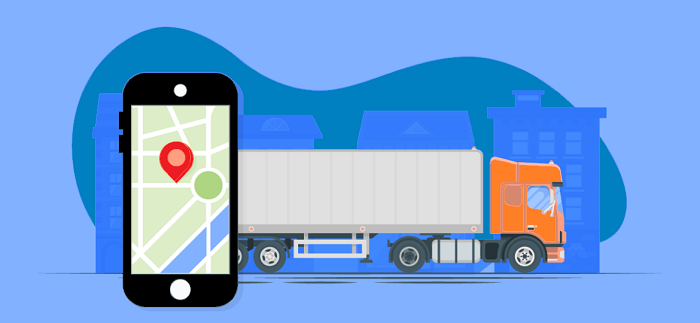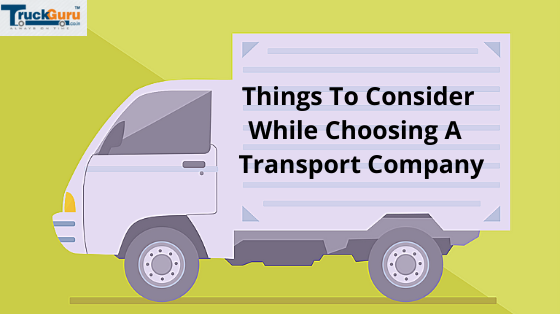The logistics and transportation industry in India plays a vital role in the country’s economy, acting as the backbone of any successful supply chain. From e-commerce and healthcare to hospitality and heavy industries, transportation firms ensure timely, safe, and efficient delivery of goods. However, several persistent issues continue to hinder the smooth flow of transportation and logistics services in India.
As India’s logistics sector continues to grow rapidly, transport companies are frequently challenged by infrastructure bottlenecks, rising operational costs, and regulatory delays. In this blog, we’ll explore the major problems in the transportation system of India and offer viable transportation problem solutions to help improve logistics efficiency and reduce delivery delays.

1. Problems of Road Transportation in India
According to logistics reports, over 60% of goods transportation in India happens via roads. Whether it’s a small parcel delivery or bulk cargo transport, roadways are the most used and accessible form of freight transportation. However, the problems of road transport in India are mounting due to outdated infrastructure, inconsistent road quality, excessive tolls, and heavy congestion.
Inadequate road infrastructure significantly impacts delivery timelines, increases vehicle wear and tear, and poses serious safety risks—especially during monsoon season. For logistics providers, this translates to increased transit times, higher maintenance costs, and lower profit margins.
Solution:
To address these road transport issues, the government and private sector must invest in long-lasting and high-durability road materials to build and maintain roads capable of handling high freight volumes. Modernizing rural and highway routes will not only improve transit reliability but also reduce breakdowns and operating costs.
For logistics companies, choosing vehicles that can withstand rough terrains and planning alternate delivery routes using intelligent transport management software can further minimise delays and costs.
2. Bad Traffic Management
India’s growing population and rising number of vehicles have led to severe traffic congestion in almost every major city. With increased urbanisation and poor traffic flow, both cargo trucks and delivery vehicles often experience long waiting times, especially during peak hours. This remains one of the most critical problems in the Indian transportation system for logistics and freight companies.
Traffic delays directly impact last-mile delivery timelines, fuel efficiency, and driver productivity, making it harder for logistics firms to maintain a consistent delivery schedule.
Solutions to Traffic Problems in Transportation:
To overcome traffic-related logistics challenges, governments must:
- Build bypass roads and dedicated freight corridors to divert heavy vehicle traffic from busy urban roads.
- Improve urban traffic flow using AI-driven traffic signal systems.
- Enforce strict no-parking zones and remove encroachments on main freight routes.
- Extend one-way street systems and change traffic light durations during peak delivery hours to support faster movement of logistics vehicles.
Investing in real-time vehicle tracking and route optimization software also enables logistics providers to avoid congested zones and ensure faster deliveries.
3. Parking Problem in Major Cities
Parking is another major bottleneck for the logistics and goods transportation sector in India, especially in metro cities. Delivery trucks and freight carriers often face difficulty finding legal and safe parking spaces, which leads to delays, fines, and increased operational costs. In commercial hubs and city centres, unregulated parking and limited unloading zones create constant challenges for logistics and courier companies.
Solutions to Parking Challenges:
Introducing zoned delivery hours for freight vehicles and allocating dedicated loading/unloading bays in commercial areas can resolve these issues. Authorities must implement strict parking regulations with higher penalties for illegal parking to keep roads clear.
Additionally, logistics providers can benefit from pre-arranged parking slots through smart parking apps or by partnering with warehouse hubs offering secure parking near delivery points. Managing this proactively reduces delays and enhances operational efficiency.
4. Increasing Fuel Prices
The impact of fuel price hike on transportation in India is profound. With crude oil prices rising by over 23% in recent months, operating costs for transportation companies have surged drastically. This results in higher freight charges, decreased profitability, and operational strain on logistics businesses, especially smaller fleets.
As petrol and diesel prices fluctuate regularly, transport firms are forced to rethink fuel efficiency and route planning to control expenses.
Solutions to Rising Fuel Costs:
Adopting fuel-efficient transport alternatives is the need of the hour. Here’s how logistics firms can adapt:
- Electric Vehicles (EVs): Invest in EV fleets for last-mile delivery services to reduce dependence on diesel/petrol and take advantage of lower running costs.
- CNG-Powered Vehicles: Switch to compressed natural gas (CNG) vehicles where infrastructure supports it. CNG is not only more economical but also environmentally sustainable.
- Route Optimization: Use GPS-enabled fleet management systems to avoid traffic-heavy routes, reduce idle time, and plan shorter paths.
- Public Transportation for Small Deliveries: In certain urban sectors, combining last-mile delivery with public modes like metro stations or bike deliveries can be more economical and environmentally responsible.
- Cycling & Walking for Last Mile: For hyperlocal deliveries, companies can integrate bicycle couriers to minimize cost and increase efficiency.
Building a Robust Transport and Logistics Network in India
While India is poised to become a global logistics hub, there’s a need for collaborative action from both public and private sectors to overcome the pressing challenges in the transport ecosystem. From poor road infrastructure and inefficient traffic systems to rising operational costs and lack of parking space, these problems affect all stakeholders—from logistics companies and truck drivers to end customers.
By investing in smart logistics solutions, adopting greener transport alternatives, and working closely with urban planners, transportation firms can dramatically improve delivery timelines, reduce overheads, and enhance customer satisfaction.If you’re a business looking for reliable, cost-efficient truck transport services across India, TruckGuru offers industry-leading solutions with a tech-driven approach. From online truck booking and logistics planning to real-time shipment tracking, we simplify your supply chain and ensure your cargo reaches safely and on time.


